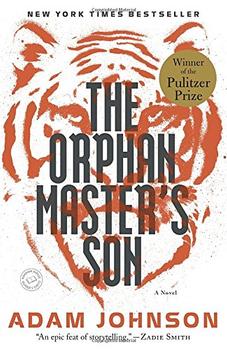Summary | Excerpt | Reviews | Beyond the book | Read-Alikes | Genres & Themes | Author Bio

A Novel
by Denis JohnsonThree separate writers use the word
"tremendous" in their reviews of Denis Johnson's
Tree of Smoke, and the word is fitting in all of
its meanings: extraordinarily great, powerful,
immense, and terrifying. Most beloved for his skinny
collection of stories, Jesus' Son, Johnson's
latest tome piles his trademark themes of
desperation, outsiders, grim fates and lazy quests
for redemption into a 614-page monster of a book
about that monster of a war, Vietnam. Forget the
particulars or historical details. This is a book
about what war does to its denizens, and
specifically, what a senseless, glory-less war does
to their souls.
Johnson's prose is powerful, physical and muscular,
and draws well lit, sharply defined, and
meticulously detailed scenes, making the unbearable
environs both cinematic and uncomfortably vivid:
"The travelers had crushed themselves together closely enough to stare at the tiny red flecks of heat damage on the surfaces of one another's eyeballs, to extend their tongues, if they felt like it, and taste the sweat on each other's cheeks… before the thing began moving, budging forward by some supernatural force, drifting hugely out of town, like a greasy, sweaty, iceberg… "
But the oppressive nature of the
surroundings is nothing compared to the
claustrophobic feelings of emptiness, sadness, and
displacement that Johnson's characters face from
within. The writing is hopped-up and manic, and in
streams of drunken dialogue, delusional rants, and
macho patter, the cast of soldiers, marines,
colonels, missionaries, and spies can blur into one
another. But in a sense they're all the same
character, the same lost soul, all of them drifting
in some godforsaken place for all the wrong reasons
-- or worse, for no reason at all. Their lives have
lost meaning, their center has been wrenched from
them and they are left, stranded, with guns, suspect
missions, and dubious assignments.
Intrigue, plot twists, and revelations run through
the novel as seemingly disparate story lines twine
together. But there are no triumphant a-ha moments
like those found in spy novels, because it's
altogether too sad, signifying more the pairing of
sorrow with sorrow, despair following despair, and
the inescapable poetic ironies of the fractured
soul.
Does it sound relentless? At moments, this giant
novel is exactly that; and certainly, it's supposed
to be. But the catch is that Johnson's often
unwieldy, rant-filled dialogue and frenetic plotline
is checkered with great, poetic moments of clarity
as his characters search for simple grace. The
chugging train of his story stops every so often at
the tug of a heartstring or simply because of the
way the light is falling, and a great feeling of
relief washes the whole grimy thing clean. Then the
whistle blows, and the train gets going, gaining
speed, and the reader's struggling to stay on. The
thing is, if you do, if you can stay on, the rewards
are rich, staggering, and rare.
![]() This review was originally published in The BookBrowse Review in September 2007, and has been updated for the
September 2008 edition.
Click here to go to this issue.
This review was originally published in The BookBrowse Review in September 2007, and has been updated for the
September 2008 edition.
Click here to go to this issue.

If you liked Tree of Smoke, try these:

by Sara Khalili, Shahriar Mandanipour
Published 2018
From "one of Iran's most important living fiction writers" (The Guardian) comes a fantastically imaginative story of love and war narrated by two angel scribes perched on the shoulders of a shell-shocked Iranian soldier who's searching for the mysterious woman haunting his dreams.

by Adam Johnson
Published 2012
An epic novel and a thrilling literary discovery, The Orphan Master's Son follows a young man's journey through the icy waters, dark tunnels, and eerie spy chambers of the world's most mysterious dictatorship, North Korea.
Your guide toexceptional books
BookBrowse seeks out and recommends the best in contemporary fiction and nonfiction—books that not only engage and entertain but also deepen our understanding of ourselves and the world around us.